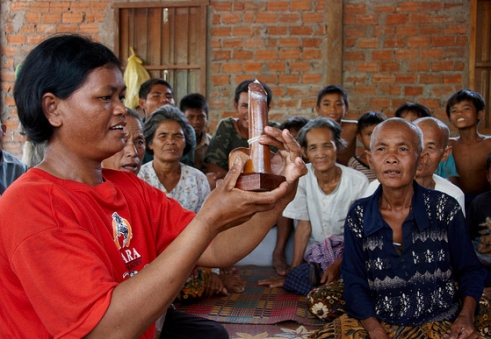The UN High Level Meeting on HIV closed on Friday 10 June with the adoption of the “Political Declaration on HIV/AIDS: Intensifying our efforts to eliminate HIV/AIDS”.
The declaration includes a bold set of commitments, which include:
- to redouble efforts to achieve universal access to HIV prevention, treatment, care and support by 2015
- to have 15 million people living with HIV on antiretroviral treatment (ART) by 2015
- the elimination of mother-to-child transmission of HIV by 2015.
Member states should be congratulated for making these commitments and for the leadership they demonstrated on the HIV response.
The changing realities of HIV
Despite this progress, the declaration missed an opportunity to acknowledge and begin to address the changing realities of HIV. With ART becoming more widely available, people are living longer with HIV.
The number of older people living with the virus is also increasing. For example:
- By 2015, at least half of those living with HIV in the United States will be 50 years of age and older.
- In sub-Saharan Africa, there are three million older people living with HIV representing more than 13% of all HIV cases in the region.
- In Botswana there was a rise in prevalence from 23.3% among men aged 50-54 years in 2004 to 28.8% in 2008 and from 19.3% to 22.2% for women in the same age group. Similar patterns are seen in the 55-59 and 60-64 year age groups.
Ageing of HIV epidemic ignored
Rachel Albone, HelpAge’s HIV and AIDS Policy Adviser explains: “This data clearly demonstrates that an ageing of the HIV epidemic is occurring and as the number of older people living with HIV increases their need for prevention, treatment, care and support services must be addressed.
“The High level Meeting was supposed to provide the framework for the future response to HIV, and the neglect of this emerging issue is incredibly short sighted. The neglect of the needs of older people should have been addressed at this meeting and the fact that this has not happened, despite the evidence, is inexplicable.”
In addition to the ageing of the epidemic, older people around the world also continue to play a key role in the response to HIV, caring for their family and community members living with and affected by the epidemic. Care and support continues to be the neglected pillar of the HIV response, despite being central to the universal access commitment reaffirmed at the High Level Meeting.
Lack of support for carers
Kufekisa Laugery is chair of the board of HelpAge partner the Senior Citizens Association of Zambia and a grandmother caring for her grandchildren and other family members affected by HIV.
She explains: “I welcome the language on care and support being included in the declaration, particularly the recognition of the need for comprehensive care and support, including physical, spiritual, psychosocial, socio-economic and legal, as well as palliative care services. However, as a grandmother carer I am particularly disappointed that there is no reference to the contribution being made by older carers.
“As grandparents and community workers we are good at giving care. What we lack is financial and material support. This declaration could have committed to provide that support but again, older people have been forgotten.“
